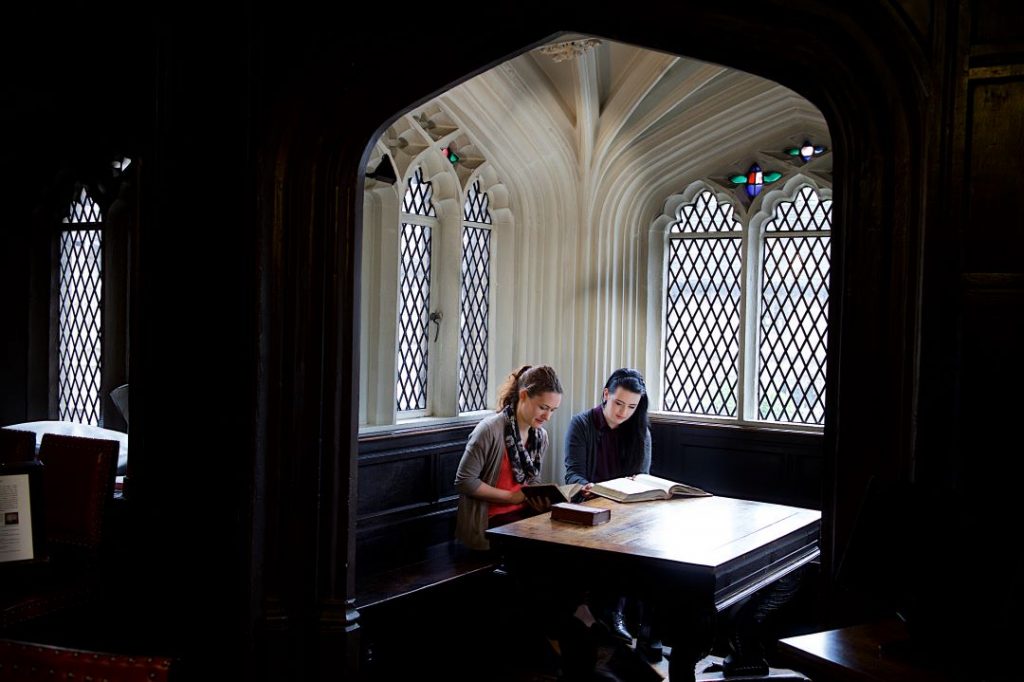
Educational Psychology – Our Favourite Books
Reading is a key part of any degree subject.
However, beyond assigned course chapters and academic journal articles, there is a shared love of engaging, entertaining, and accessible texts to enjoy at any time.
We asked members of the programme what books they would recommend to students, and why.
|
|
Dr. Michael Wigelsworth – Course DirectorI very much recommend The Man Who Mistook his Wife for a Hat. This is one of a series of books by the famed neurologist Oliver Sacks, which present a number of fantastically extraordinary, bizarre and almost inconceivable disorders. This really opened my eyes to the mystery of the human mind.
|
|
|
Dr. Garry Squires – Unit LeadKnow How Your Brain Works is a New Scientist Instant Expert book. I like this book because it is an easy read and presents all sorts of fascinating information about what is going on inside your head. It provides a great overview of material that will be covered in the Year 1 module The Brain Goes To School and material that will be covered in the Year 2 module Cognition and Learning.
|
|
|
Prof. Pamela Qualter – Unit LeadI would really recommend Robert Plumin’s Blueprint: How DNA Makes Us Who We Are. The book pulls together a lifetime or research to give us new insights into the Nature/ Nurture debate.
|
|
|
Alisha O’Neill – Unit LeadI recommend Mark Haddon’s The Curious Incident of the Dog in the Night-Time, which is an interesting and unique read, I couldn’t put it down. More broadly, I would always recommend James Joyce – A Portrait of the Artist as a Young Man.
|
|
|
Dr Kelly Burgoyne – Unit LeadAny of Anthony Browne’s childrens books. They are captivating and as an adult you see so much more in them than you might have as a child. They will reignite your passion for reading and the simple pleasure to be found in a book. For a more academic recommendation, my vote goes to How we Learn: The New Science of Education and The Brain by Stanislas Dehaene. A very accessible and engaging book that introduces ideas and concepts with broad application across psychology and education.
|
|
|
Dr Charlotte Bagnall – Unit LeadI very much recommend reading Lucy Maddox’s Blueprint: How our Childhood Makes us Who we are which brings together examples from clinical practice, research and everyday experience to provide a highly accessible and engaging whistle-stop tour of psychological development. I would also recommend subscribing to the Psychologist Magazine which is a great way to keep up to date with exciting research, discussion and debate within the field.
|
|
|
Hannah Wilkinson– Course TutorMy interest in positive psychology would lead me to recommend reading The Chimp Paradox by Steve Peters. Although this book is targeted at personal growth (which is great in itself), I also like that it touches on a variety of areas of psychology such as individual differences, neurology, cognition and social psychology, providing simple analogies to understand the impact of these processes on why people respond to the world in different ways.
|
|
|
Dr Ola Demkowicz – Unit LeadI strongly recommend Lucy Foulkes’ recent book Losing Our Minds: What Mental Illness Really is and What it is not. If you’re interested in mental health and mental illness and how we currently understand and talk about it, this is an incredibly informative, compassionate, and accessible account that is well worth a read. I also recommend our University Chancellor Lemn Sissay’s s memoir My Name is Why, in which Lemn recounts his experiences of growing up in the English care system. |
Bonus choice:
Although much closer to an ‘academic text’, Psychology of Education: Theory Research and Evidence-based Practice, edited by Janet Lord is a really good example of the kinds of topics and issues we address on the course, so we mention it here as well.














0 Comments